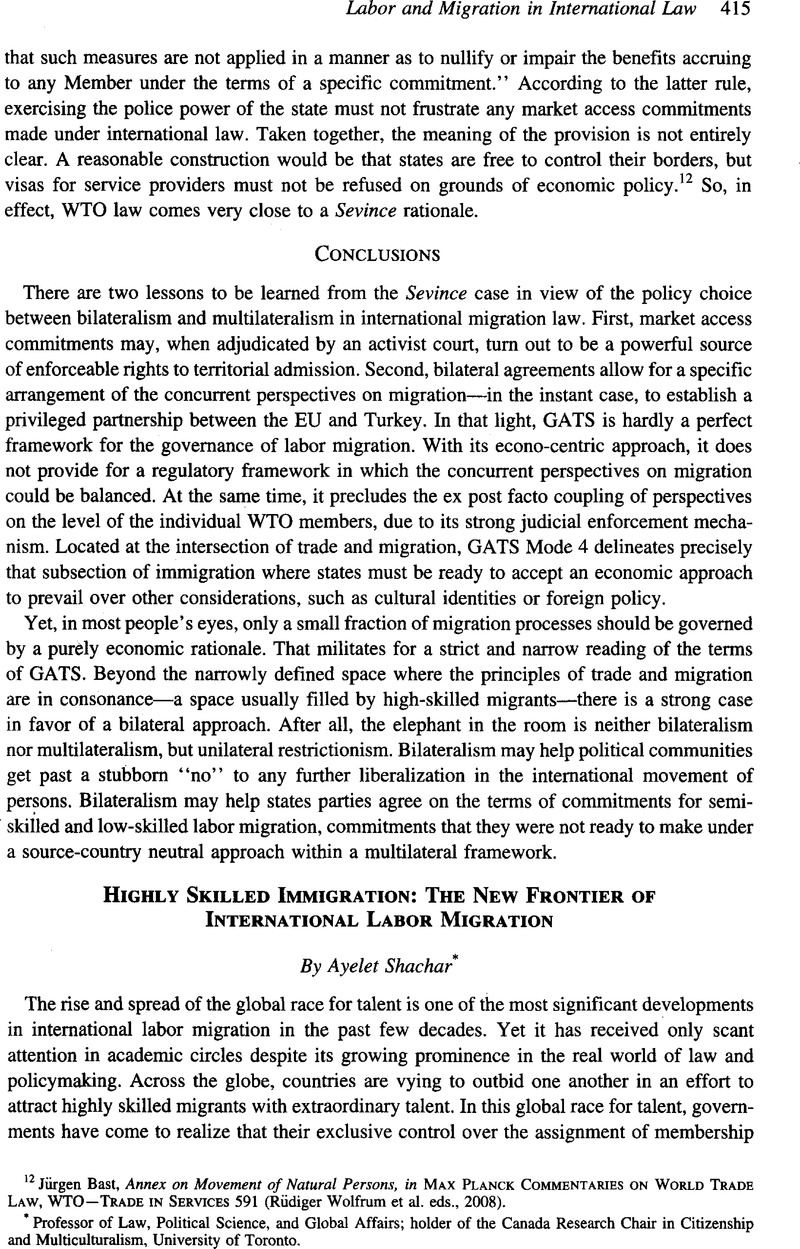Article contents
Highly Skilled Immigration: The New Frontier of International Labor Migration
Published online by Cambridge University Press: 28 February 2017
Abstract

- Type
- Labor and Migration in International Law: Challenges of Protection, Specialization, and Bilateralism
- Information
- Copyright
- Copyright © American Society of International Law 2011
References
1 These countries do not extend such an invitation, however, to unskilled, low-skilled, or semi-skilled migrants, who increasingly arrive on temporary employment visas and are expected to leave the country once their visa expires, especially if they have no family ties or exceptional humanitarian grounds that can secure them status.
2 I use the terms “smaller jurisdictions” or “small-economy jurisdictions” here not to refer to geographic size or political importance, but rather to highlight the interdependence of these jurisdictions with major economic powers, resembling the notion of follower states in the study of economic globalization.
3 See Shachar, Ayelet, Picking Winners: Olympic Citizenship and the Global Race for Talent, 120 Yale L.J. 2088 (2011)Google Scholar.
4 It is far less clear whether sending countries are well-equipped to deal with the potential downside of highly skilled migration, if such migration creates a sustained pattern of brain drain, rather than a more complicated networking and circulation of knowledge effect. If such negative externalities are empirically verifiable, is there a duty for members of affluent societies—those who benefit from the fruits of the labor of the incoming skilled migrants—to compensate the emigrants’ home community? These questions are at the heart of heated contemporary debates.
- 2
- Cited by


